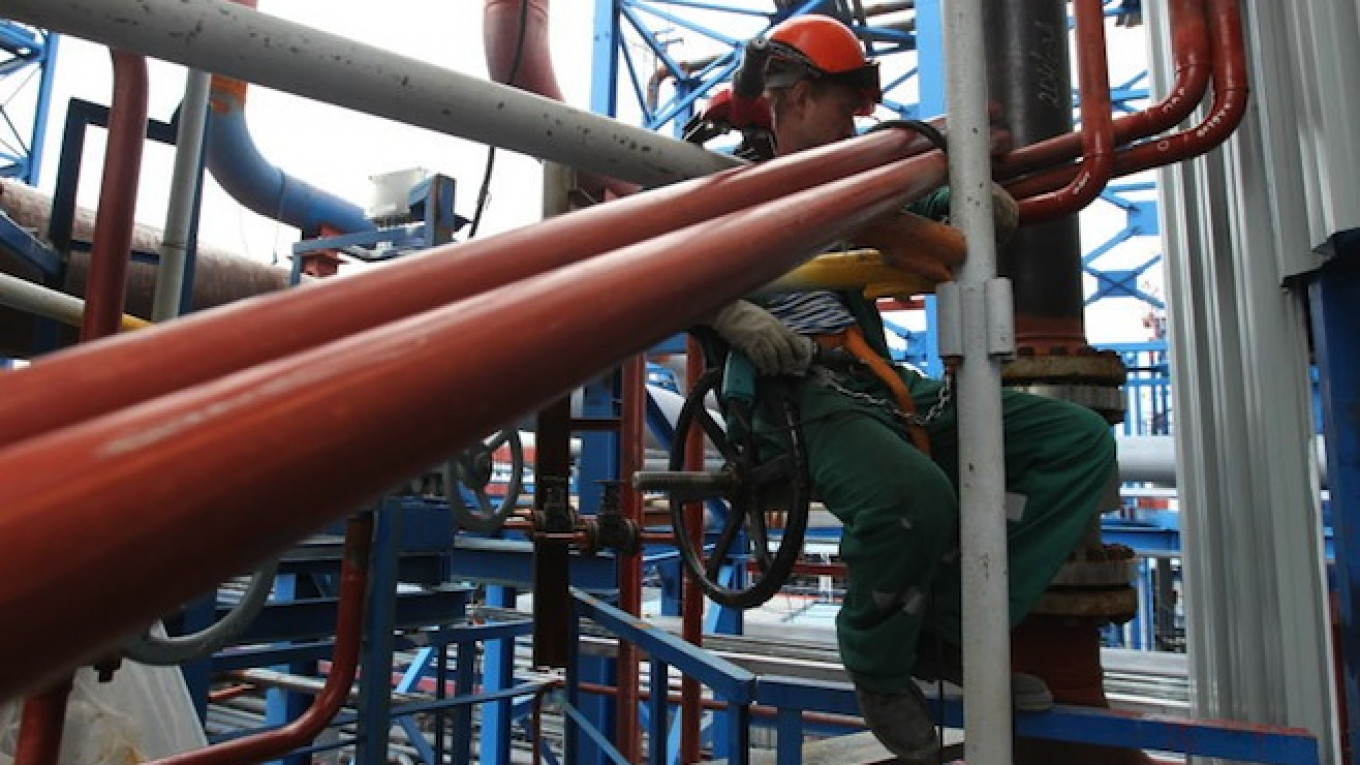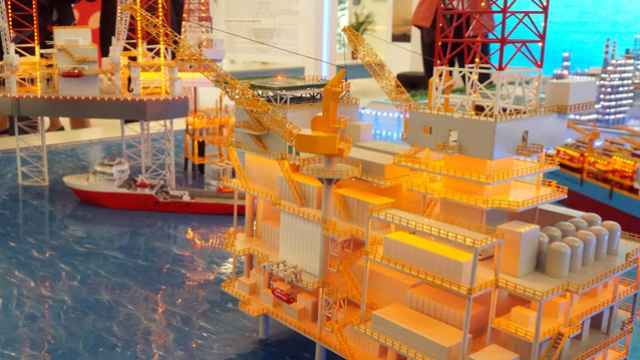Russia, in desperate need of higher oil prices, is making a last-ditch attempt to sway this week's OPEC meeting by suggesting Moscow could cut output if the group does the same.
But in a sign that it has yet to take a final decision, Russia has also said instead of cutting output it could just keep it flat.
"We think that our contribution, in principle, is that we are keeping our oil production [flat]. We are not increasing," Energy Minister Alexander Novak told Rossia-24 state television in an interview aired in full on Monday.
Russia needs an oil price of $100 per barrel to balance its budget. With oil prices threatening to go as low as $60 if OPEC does not agree a significant output cut, Moscow could see its economy fall into recession.
Citing sources, the Kommersant newspaper said Monday that Russia might suggest cutting its oil production by around 15 million tons a year (300,000 barrels per day) from next year and that Moscow expected the Organization of the Petroleum Exporting Countries to limit its output by another 70 million tons. OPEC meets in Vienna on Nov. 27
Industry players are skeptical that Russia may do anything significant to shore up prices as it did not contribute even when it promised to cut exports to help OPEC curb an oil price fall in the early 2000s.
Russia is among the world's top three crude oil producers, along with the United States and Saudi Arabia, and last month was pumping near post-Soviet highs of 10.6 million bpd.
Some analysts say an OPEC cut of as much as 1.5 million barrels per day is needed to support oil prices. Benchmark Brent prices are down around 30 percent since June at around $80 per barrel.
Novak estimated that currently supply is some 700,000 to 800,000 bpd higher than demand. Russia plans to keep oil production at around 520 million to 525 million tons a year (10.4-10.5 million bpd) till 2020, he said.
"To make a rapid cut or a rapid increase is physically impossible. We have our oil production specifics," Novak said.
Novak said last week Moscow was looking at the option of cutting oil production, but said the measure had yet to be agreed.
A source familiar with the matter told Reuters that the idea in Kommersant was one possible option and that there were other ways of shoring up prices.
Analysts, however, say Russia can do little to bolster the oil price because it lacks storage facilities and may be unable to stop pumping at wells for fear they will freeze over.
A Message from The Moscow Times:
Dear readers,
We are facing unprecedented challenges. Russia's Prosecutor General's Office has designated The Moscow Times as an "undesirable" organization, criminalizing our work and putting our staff at risk of prosecution. This follows our earlier unjust labeling as a "foreign agent."
These actions are direct attempts to silence independent journalism in Russia. The authorities claim our work "discredits the decisions of the Russian leadership." We see things differently: we strive to provide accurate, unbiased reporting on Russia.
We, the journalists of The Moscow Times, refuse to be silenced. But to continue our work, we need your help.
Your support, no matter how small, makes a world of difference. If you can, please support us monthly starting from just $2. It's quick to set up, and every contribution makes a significant impact.
By supporting The Moscow Times, you're defending open, independent journalism in the face of repression. Thank you for standing with us.
Remind me later.






